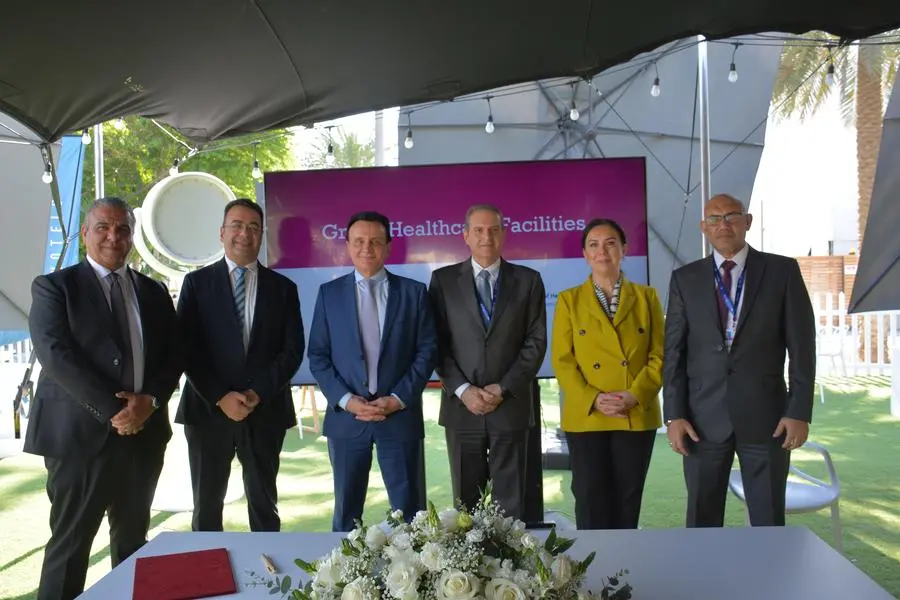PHOTO
Jordanian Ministry of Health and AstraZeneca have signed a landmark agreement designed to contribute to the sustainability initiative of establishing Green Hospitals concept in Jordan.
The official signing ceremony took place at an event during COP28, the United Nation’s Climate Change Conference, held this year in Dubai, United Arab Emirates. Signatories to the agreement were H.E. Professor Firas Al Hawari, Minister of Health in Jordan and Rami Scandar, Country President Near East and Maghreb at AstraZeneca.
Globally the health industry is responsible for an estimated 5% of greenhouse gas emissions every year,[i] and if current trajectories continue, these emissions are predicted to treble by 2050.[ii] Today’s innovative agreement seeks to lower that contribution and deliver more sustainable, low carbon healthcare in 2024, and will achieve this by facilitating the development of a “green hospital accreditation framework” in Jordan including assessing carbon footprints, provision of solar panels supporting usage of renewable energy and provision of water purification system for the different facilities.
Rami Scandar, Country President, AstraZeneca, said, “The detrimental health impacts of climate change on people and the planet are being increasingly felt, including through a rise in chronic and infectious diseases. Recognising that no one business, government, or organisation can do it alone, AstraZeneca is committed to playing our part to build a more sustainable healthcare future in Jordan, and this agreement is an important step towards that goal.”
H.E. Professor Firas Al Hawari, Minister of Health, Jordan said: “In Jordan, the Ministry of Health is committed to its sustainable vision seeking to reduce the negative impact of health services on the climate. The Ministry is determined to enhance the health sector’s resilience preparing local communities and vulnerable populations to face the effects of climate change while ensuring health equity. With this partnership we look forward to fulfil our mission serving our Jordanian communities and environment.”
The agreement forms part of AstraZeneca’s strong overall presence at COP28, where the company has raised awareness of the climate-health crisis, shared bold and scalable solutions, and aimed to inspire action across and beyond the health sector. It also reaffirmed its Ambition Zero Carbon programme, which aims to deliver decarbonisation across the global company’s value chain.
In a demonstration of the company’s ongoing commitment to the Middle East and Africa region, Pascal Soriot, CEO of AstraZeneca, also participated in a COP28 event co-hosted by the UAE Ministry of Health and Prevention and the Eastern Mediterranean Regional Office of the World Health Organization.
The event, entitled Reimagining Sustainable Healthcare, brought together Health Ministers and changemakers from across the Middle East and North Africa to drive momentum to achieve sustainable, resilient healthcare systems in the region.
AstraZeneca
AstraZeneca (LSE/STO/Nasdaq: AZN) is a global, science-led biopharmaceutical company that focuses on the discovery, development, and commercialisation of prescription medicines in Oncology, Rare Diseases, and BioPharmaceuticals, including Cardiovascular, Renal & Metabolism, and Respiratory & Immunology. Based in Cambridge, UK, AstraZeneca operates in over 100 countries and its innovative medicines are used by millions of patients worldwide. Please visit astrazeneca.com and follow the Company on Twitter @AstraZeneca.
References:
[i] Countdown on health and climate change: responding to converging crises (The Lancet, 2020)
[ii] Global Road Map for Health Care Decarbonization (Healthcare Without Harm, 2021)



















